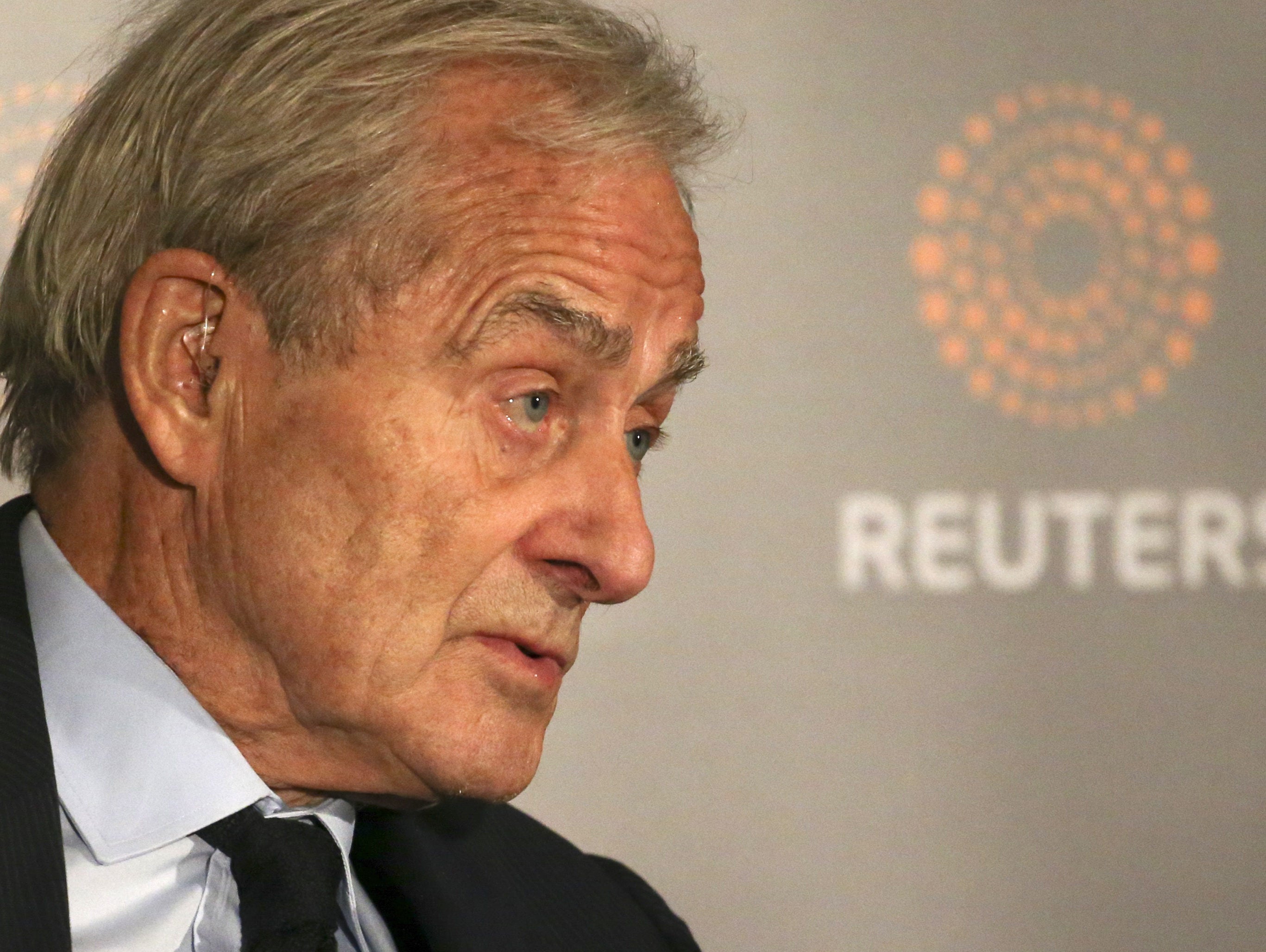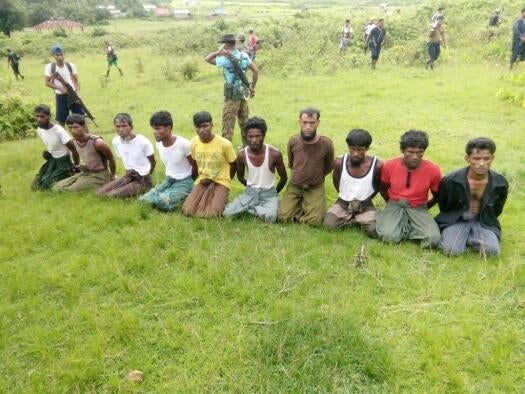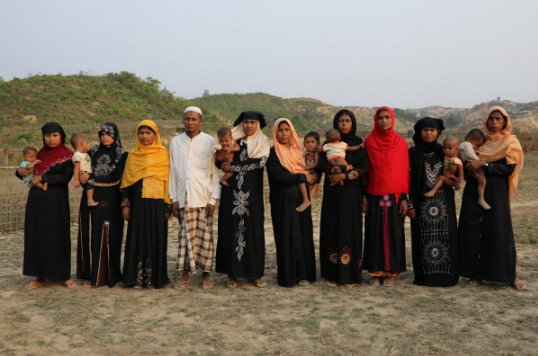
Two photographs from news agency Reuters have been singled out by former Sunday Times editor Sir Harold Evans for “pushing the boundaries of photojournalism”.
In an article for Columbia Journalism Review, Evans said: “Together they [the two photographs] rebut the idea that the still image deludes the mind and deadens the emotions.”
The two photographs in question were of victims of the Rohingya massacre in Myanmar (also known as Burma).
One depicts the ten men who were murdered in Inn Din village, Rakhine State, knelt down with their hands behind their head. The other shows a line-up of the victims’ loved ones: parents, wives and children.
“They stand as an inspired example of symmetry and grace, respectful of the occasion, and the innate dignity of the individuals,” said Evans, who is editor-at-large of Reuters.
“The picture of the kneeling men is shocking, the second apparently innocuous, but it is the two together that reverberate with extraordinary power.”
He added: “It is surprising that such dramatic coupling has been pretty well abandoned by photo editors when it may offer corroboration as well as comprehension.”

Ten Rohingya Muslim men with their hands bound kneel as members of the Myanmar security forces stand guard in Inn Din village, 2 September 2017. Picture: Reuters

Relatives of ten Rohingya men killed by Myanmar security forces and Buddhist villagers on 2 September 2017, pose for a group photo in Cox’s Bazar, Bangladesh, 23 March 2018. Picture: Reuters/Mohammad Ponir Hossain
Nearly 700,000 Muslim refugees from the Rohingya province of Myanmar have attempted to flee the country across the northern border and into Bangladesh.
The photograph of the ten men and the accompanying investigation had added significance as seven Myanmar soldiers were consequently found guilty of participating in the massacre and sentenced to ten years in prison.
In its article, titled “The day they took our men”, Reuters also claims the photos were the “first confirmation for many of the families that their men were dead”.
Evans explained that Reuters journalists tracked down the bereaved family members to bring them the news of the deaths.
“Without Reuters,” said the brother-in-law of Abdul Majid, one of the 10 Rohingya men killed, “we’d have no idea what happened to our relatives.”
The photograph of the relatives was organised and shot by Andrew Marshall, a Reuters reporter and special correspondent for South East Asia, while the photo of the ten Rohingya men was obtained from a Buddhist village elder, and authenticated by witnesses.
On 16 April Reuters picked up two awards at the Pulitzer prizes – one for their coverage of violence against Rohingya refugees and another for reporting on the Philippine drug war.
It was the first time the news agency had received two Pulitzer prizes in the same year.
The Reuters staff were awarded for their “shocking photographs that exposed the world to the violence Rohingya refugees faced in fleeing Myanmar”, according to the judging panel.
Reuters reporters Wa Lone and Kyaw Soe Oo are currently on trial in Myanmar over their reporting of the Rohingya massacre despite repeated calls from Reuters for their release.
Picture: Reuters/Bria Webb
Email pged@pressgazette.co.uk to point out mistakes, provide story tips or send in a letter for publication on our "Letters Page" blog
